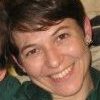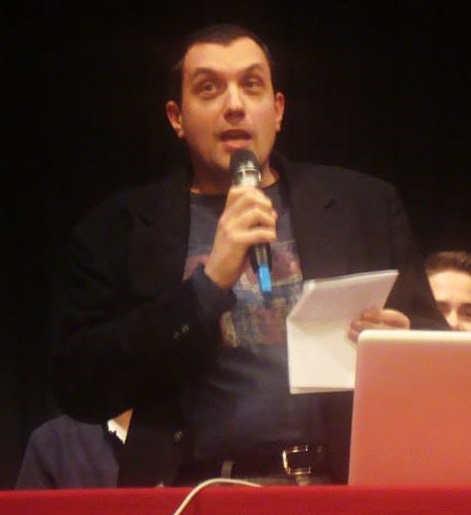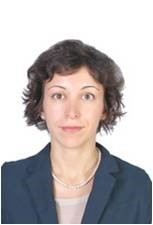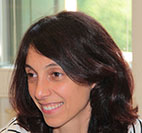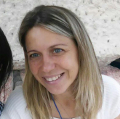Studying at the University of Verona
Here you can find information on the organisational aspects of the Programme, lecture timetables, learning activities and useful contact details for your time at the University, from enrolment to graduation.
Academic calendar
The academic calendar shows the deadlines and scheduled events that are relevant to students, teaching and technical-administrative staff of the University. Public holidays and University closures are also indicated. The academic year normally begins on 1 October each year and ends on 30 September of the following year.
Course calendar
The Academic Calendar sets out the degree programme lecture and exam timetables, as well as the relevant university closure dates..
| Period | From | To |
|---|---|---|
| Primo semestre | Oct 4, 2021 | Jan 28, 2022 |
| Primo semestre 3 anno | Oct 25, 2021 | Jan 28, 2022 |
| Secondo semestre | Mar 7, 2022 | Jun 10, 2022 |
| Session | From | To |
|---|---|---|
| Sessione invernale d'esame | Jan 31, 2022 | Mar 4, 2022 |
| Sessione estiva d'esame | Jun 13, 2022 | Jul 29, 2022 |
| Sessione autunnale d'esame | Sep 1, 2022 | Sep 30, 2022 |
| Session | From | To |
|---|---|---|
| Sessione di laurea estiva | Jul 22, 2022 | Jul 22, 2022 |
| Sessione di laurea autunnale | Oct 21, 2022 | Oct 21, 2022 |
| Sessione di laurea autunnale - Dicembre | Dec 9, 2022 | Dec 9, 2022 |
| Sessione di laurea invernale | Mar 17, 2023 | Mar 17, 2023 |
| Period | From | To |
|---|---|---|
| Festa di Tutti i Santi | Nov 1, 2021 | Nov 1, 2021 |
| Festa dell'Immacolata | Dec 8, 2021 | Dec 8, 2021 |
| Festività natalizie | Dec 24, 2021 | Jan 2, 2022 |
| Festività pasquali | Apr 15, 2022 | Apr 19, 2022 |
| Festa della Liberazione | Apr 25, 2022 | Apr 25, 2022 |
| FESTA DEL LAVORO | May 1, 2022 | May 1, 2022 |
| Festa di San Zeno - S. Patrono di Verona | May 21, 2022 | May 21, 2022 |
| Festa della Repubblica | Jun 2, 2022 | Jun 2, 2022 |
| Chiusura estiva | Aug 15, 2022 | Aug 20, 2022 |
Exam calendar
Exam dates and rounds are managed by the relevant Science and Engineering Teaching and Student Services Unit.
To view all the exam sessions available, please use the Exam dashboard on ESSE3.
If you forgot your login details or have problems logging in, please contact the relevant IT HelpDesk, or check the login details recovery web page.
Should you have any doubts or questions, please check the Enrollment FAQs
Academic staff
 alessandra.amato@univr.it
alessandra.amato@univr.it
 luca.castagnetti@univr.it
luca.castagnetti@univr.it
 michela.cecchin@univr.it
michela.cecchin@univr.it
 bruno.gobbi@univr.it
bruno.gobbi@univr.it
 lorenzo.meneghini@univr.it
lorenzo.meneghini@univr.it
 franco.zivcovich@univr.it
franco.zivcovich@univr.it
Study Plan
The Study Plan includes all modules, teaching and learning activities that each student will need to undertake during their time at the University.
Please select your Study Plan based on your enrollment year.
1° Year
| Modules | Credits | TAF | SSD |
|---|
2° Year activated in the A.Y. 2022/2023
| Modules | Credits | TAF | SSD |
|---|
3° Year activated in the A.Y. 2023/2024
| Modules | Credits | TAF | SSD |
|---|
| Modules | Credits | TAF | SSD |
|---|
| Modules | Credits | TAF | SSD |
|---|
| Modules | Credits | TAF | SSD |
|---|
Legend | Type of training activity (TTA)
TAF (Type of Educational Activity) All courses and activities are classified into different types of educational activities, indicated by a letter.
Grapevine Protection - PATOLOGIA (2023/2024)
Teaching code
4S02740
Credits
9
Coordinator
Not yet assigned
Language
Italian
Scientific Disciplinary Sector (SSD)
AGR/12 - PLANT PATHOLOGY
Courses Single
Authorized
To show the organization of the course that includes this module, follow this link: Course organization
The teaching is organized as follows:
Teoria di patologia
Teoria di entomologia
Laboratorio [Laboratorio 1° turno]
Laboratorio [Laboratorio 2° turno]
Esercitazioni di entomologia
Program
------------------------
UL: Teoria di patologia
------------------------
Introduction to plant pathology
History of Plant Pathology, scientific and economic relevance of plant pathology.
Terminology: Parasitism and Pathogenicity, Host Range of Pathogens, Stages in the Development of Disease, The Disease Cycle
Classification of the main classes of phytopathogens (taxonomy)
Diseases caused by phytopathogenic fungi and fungal-like organisms
General features of phytopathogenic fungi
Taxonomy and classification
The infection process
Pathogenicity factors: lytic enzymes, phytotoxins, hormones, research for fungal pathogenicity factors.
Diseases caused by phytopathogenic procariotes
General features of phytopathogenic procariotes (bacteria and phytoplasmas)
Taxonomy and classification
The infection process
Pathogenicity factors: lytic enzymes, phytotoxins, hormones, LPSs, research for bacterial pathogenicity factors.
Diseases caused by phytopathogenic viruses and viroids
General features of phytopathogenic viruses
Taxonomy and classification
The infection process: transmission, replication, movement.
Viroids: transmission, replication.
Diagnostic tools in phytopathology:
Isolation of pathogens in pure culture: Kock’s postulates
Biochemical, serological and molecular methods in plant disease diagnosis
Use of indicator plants
Basic concepts in Plant Protection
Control Methods that Exclude the Pathogen from the Host: Quarantines and Inspections,
Crop Certification
Agronomical and physical measures for disease control and prevention
Direct Protection of Plants from Pathogens: Chemical and Biological Control measures
Breeding for Resistance and Genetic Engineering Techniques: Genetics of Virulence in Pathogens and of Resistance in Host.
Integrated approaches to plant disease control
Basic concepts of epidemiology; examples of forecasting models for prevention and therapy of plant diseases.
Specific pathogens and diseases presented:
Fungi and fungal-like pathogens
Downy mildew
Powdery mildew
Gray mold
Root rot (Armillaria , Rosellinia)
Trunk diseases : esca, Eutypa, Phomopsis
Tracheomycoses (Verticillium sp)
Berry rottings
Bacteria and phytopalsmas
A. tumefaciens, A. vitis e Xylophilus ampelinus,Xylella fastidiosa
Candidatus fitoplasma spp.:
Flavescence dorée; Bois Noir
Viruses and viroids
Grapevine fanleaf
Grapevine leafroll
Corky bark; stem pitting; stem grooving.
Fleck disease of grapevine
------------------------
UL: Teoria di entomologia
------------------------
Pest management: Damage threshold. Chemical control and insects management. Insecticides: general information, mode of action, selectivity and phytotoxicity. Pest resistance management and man-made pests. Biological and integrated pest control. Cultural and mechanical control.
------------------------
UL: Laboratorio
------------------------
Lab. 1 - Observation of disease symptoms in planta and isolation of fungal and bacterial pathogens in pure culture
Lab. 2- Observation and identification of fungal pathogens under the microscope
Lab. 3- Handling and inoculation of fungal and bacterial pathogens in plants
Lab. 4- Handling and inoculation of plant viruses in indicator hosts
Lab. 5- ELISA test
Lab. 6- Molecular diagnosis of phytoplasmas and Identification of fungicide resistant fungal strains
Lab. 7- Field trip
------------------------
UL: Laboratorio
------------------------
see program Laboratory 1° group
------------------------
UL: Esercitazioni di entomologia
------------------------
Insects
ORTHOPTERA:
Ensifera: Tettigoniidae: Barbitistes vicetinus
Caelifera: Acrididae: Calliptamus italicus
THYSANOPTERA:
Terebrantia:
Tubulifera: Thripidae: Drepanotrips reuteri, Frankliniella occidentalis
HEMIPTERA:
Archeorrhyncha:
Flatidae: Metcalfa pruinosa
Ciixidae: Hyalesthes obsoletus
Clypeorrhyncha:
Aphophoridae:Philaenus spumarius
Cicadellidae: Empoasca vitis, Zygina rhamni, Scaphoideus titanus,
Erythroneura vulnerata
Sternorrhyncha:
Phylloxeridae: Viteus vitifoliae
Pseudococidae:Planococcus ficus, P. comstocki Heliococcus bohemicus
Coccidae: Neopulvinaria innumerabilis, Partenolecarnium corni, Pulvinaria vitis
Diaspididae: Targionia vitis
Heteroptera:
Pentatomidae: Halyomorpha halys
COLEOPTERA:
Attelabidae: Bycthiscus betulae
Bostrichidae: Sinoxylon perforans
Cerambycidae:Vesperus luridus
Chrysomelidae: Altica ampelophaga
Curculionidae: Otiorhynchus sulcatus
Reduvidae: Popillia Japonica
Scarabeidae: Anomala vitis, Melolontha melolontha
DIPTERA:
Nematocera
Cecidomyiidae: Janeitiella oenophila
Brachycera
Drosophilidae: Drosophila melanogaster, D. suzukii
LEPIDOPTERA:
Tortricidae: Argyrotaenia pulchellana, Eupoecilia ambiguella Lobesia botrana,Sparganothis pilleriana
Pyralidae: Cryptoblabes gnidiella, Ephestia unicolorella woodiella
Zygaenidae: Theresemima ampelophaga
Heliozelidae: Holocacista rivillei, Antispila oinophyilla.
Phyllocnistidae: Phyllocnistis vitegenella
Erebidae: Hyphantria cunea
Noctuidae: Agrotis ipsilon, A. segetum
HYMENOPTERA
Symphyta
Apocrita: Vespidae: Vespula germanica
MITE
Morphology, anatomy,
Development and behavior
Mite-plant relationship
Grapevine mites (cycle, damage and control):
Eriophyidae: Calepitrimerus vitis, Colomerus vitis
Tetranychidae: Eotetranychus carpini, Panonychus ulmi, Tetranychus urticae
Phytoseiidae: Amblyseius andersoni, Kampimodromus aberrans, Typhlodromus pyri
NEMATODS:
Grapevine nematods (cycle, damage and control):
Longidoridae: Xiphimena index
Didactic methods
------------------------
UL: Teoria di patologia
------------------------
------------------------
UL: Teoria di entomologia
------------------------
The knowledge will be developed with lectures and personal study on the texts and on the material presented in class that will be available in the Library and/or uploaded to e-learning platform. Moreover, throughout the academic year, the individual reception service will be available (by specific appointment). Attending students will receive in the first lesson the complete timetables of teaching activities with the dates and topics discussed in the lessons
------------------------
UL: Laboratorio
------------------------
------------------------
UL: Laboratorio
------------------------
------------------------
UL: Esercitazioni di entomologia
------------------------
During each lab. exercise, videos and tutorials will initially be used to introduce the morphology, the biology and the harmfulness of the investigated insects / mites; after that, using live or preserved biological material, morfological practical exercitation will be carried with the the stereoscope
Learning assessment procedures
------------------------
MM: Teoria di patologia
------------------------
The exam consists in a colloquium, to evaluate students' achievements, in relation to the above indicated objectives.
------------------------
MM: Teoria di entomologia
------------------------
The exam will be made in oral form for both attending students and non-attending students. Under health emergency, this oral mode can be changed in remote telematics one. The attendance at the practice exercises is mandatory in order to be eligible to do the exam. The exam will assess the degree of knowledge on the topics presented during the lectures. The knowledge and the ability to connect knowledge in a systemic and critical way will also be evaluated. The final evaluation is expressed in thirtieths. To determine the overall grade of the exam, the weighted average of the votes obtained in the two modules will be calculated
------------------------
MM: Laboratorio
------------------------
The verification of the skills acquired during the laboratory activities will take place during the oral exam relating to the theoretical part. The student will have to demonstrate, starting from photographic material, to be able to formulate a diagnostic hypothesis and to correctly approach the diagnostic methods suitable for the example provided.
------------------------
MM: Laboratorio
------------------------
see Exam description Laboratory 1° group
------------------------
MM: Esercitazioni di entomologia
------------------------
The exam will be made in oral form for both attending students and non-attending students. Under health emergency, this oral mode can be changed in remote telematics one. The attendance at the practice exercises is mandatory in order to be eligible to do the exam. The exam will assess the degree of knowledge on the topics presented during the lectures. The knowledge and the ability to connect knowledge in a systemic and critical way will also be evaluated. The final evaluation is expressed in thirtieths. To determine the overall grade of the exam, the weighted average of the votes obtained in the two modules will be calculated.
Evaluation criteria
The exam will assess the degree of knowledge on the topics presented during the lectures. The knowledge and the ability to connect knowledge in a systemic and critical way will also be evaluated. The final evaluation is expressed in thirtieths. To determine the overall grade of the exam, the weighted average of the votes obtained in the two modules will be calculated
Exam language
Italiano
Sustainable Development Goals - SDGs
This initiative contributes to the achievement of the Sustainable Development Goals of the UN Agenda 2030. More information on sustainability


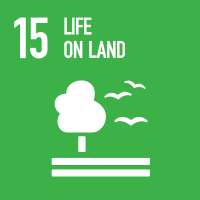
Type D and Type F activities
Le attività formative di tipologia D sono a scelta dello studente, quelle di tipologia F sono ulteriori conoscenze utili all’inserimento nel mondo del lavoro (tirocini, competenze trasversali, project works, ecc.). In base al Regolamento Didattico del Corso, alcune attività possono essere scelte e inserite autonomamente a libretto, altre devono essere approvate da apposita commissione per verificarne la coerenza con il piano di studio. Le attività formative di tipologia D o F possono essere ricoperte dalle seguenti attività.
1. Insegnamenti impartiti presso l'Università di Verona
Comprendono gli insegnamenti sotto riportati e/o nel Catalogo degli insegnamenti (che può essere filtrato anche per lingua di erogazione tramite la Ricerca avanzata).
Modalità di inserimento a libretto: se l'insegnamento è compreso tra quelli sottoelencati, lo studente può inserirlo autonomamente durante il periodo in cui il piano di studi è aperto; in caso contrario, lo studente deve fare richiesta alla Segreteria, inviando a carriere.scienze@ateneo.univr.it il modulo nel periodo indicato.
2. Attestato o equipollenza linguistica CLA
Oltre a quelle richieste dal piano di studi, per gli immatricolati dall'A.A. 2021/2022 vengono riconosciute:
- Lingua inglese: vengono riconosciuti 3 CFU per ogni livello di competenza superiore a quello richiesto dal corso di studio (se non già riconosciuto nel ciclo di studi precedente).
- Altre lingue e italiano per stranieri: vengono riconosciuti 3 CFU per ogni livello di competenza a partire da A2 (se non già riconosciuto nel ciclo di studi precedente).
Tali cfu saranno riconosciuti, fino ad un massimo di 6 cfu complessivi, di tipologia F se il piano didattico lo consente, oppure di tipologia D. Ulteriori crediti a scelta per conoscenze linguistiche potranno essere riconosciuti solo se coerenti con il progetto formativo dello studente e se adeguatamente motivati.
Gli immatricolati fino all'A.A. 2020/2021 devono consultare le informazioni che si trovano qui.
Modalità di inserimento a libretto: richiedere l’attestato o l'equipollenza al CLA e inviarlo alla Segreteria Studenti - Carriere per l’inserimento dell’esame in carriera, tramite mail: carriere.scienze@ateneo.univr.it
3. Competenze trasversali
Scopri i percorsi formativi promossi dal TALC - Teaching and learning center dell'Ateneo, destinati agli studenti regolarmente iscritti all'anno accademico di erogazione del corso https://talc.univr.it/it/competenze-trasversali
Modalità di inserimento a libretto: non è previsto l'inserimento dell'insegnamento nel piano di studi. Solo in seguito all'ottenimento dell'Open Badge verranno automaticamente convalidati i CFU a libretto. La registrazione dei CFU in carriera non è istantanea, ma ci saranno da attendere dei tempi tecnici.
4. Periodo di stage/tirocinio
Oltre ai CFU previsti dal piano di studi (verificare attentamente quanto indicato sul Regolamento Didattico): qui informazioni su come attivare lo stage.
Insegnamenti e altre attività che si possono inserire autonomamente a libretto
| years | Modules | TAF | Teacher |
|---|---|---|---|
| 3° | Cellar door wine tourism | D |
Katia Laura Sidali
(Coordinator)
|
| 3° | Wine marketing | D |
Diego Begalli
(Coordinator)
|
| years | Modules | TAF | Teacher |
|---|---|---|---|
| 3° | New Grapevine Breeding techniques | D |
Sara Zenoni
(Coordinator)
|
| years | Modules | TAF | Teacher |
|---|---|---|---|
| 1° | Subject requirements: basic mathematics and physics | D | Not yet assigned |
Career prospects
Module/Programme news
News for students
There you will find information, resources and services useful during your time at the University (Student’s exam record, your study plan on ESSE3, Distance Learning courses, university email account, office forms, administrative procedures, etc.). You can log into MyUnivr with your GIA login details: only in this way will you be able to receive notification of all the notices from your teachers and your secretariat via email and soon also via the Univr app.
Graduation
Attendance
As stated in the Teaching Regulations for the A.Y. 2022/2023, attendance is mandatory for practical and laboratory activities, unless otherwise determined by the Teaching Committee.
Documents
| Title | Info File |
|---|---|
|
|
pdf, it, 121 KB, 18/10/23 |

 045 8028731
045 8028731






